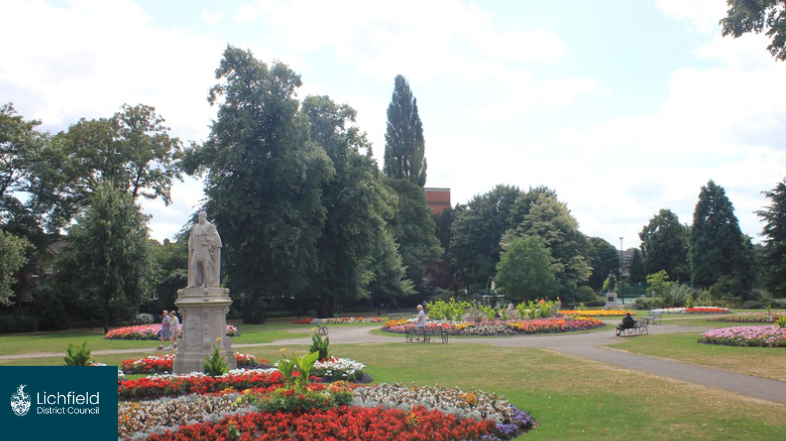A national mission to restore and improve the quality of Britain’s parks and green spaces could help restore trust in government at a moment when confidence in politics is disintegrating, according to new research by public opinion research agency and thinktank More in Common.
The report finds the proportion of Britons who believe the Labour Government will improve their lives has halved from 54 per cent immediately after the General Election to just 27 per cent now.
Only half (57 per cent) of 2024 Labour voters expect the government to improve their lives. Labour is retaining just 34 per cent of these disillusioned voters. This collapse in confidence in the government’s ability to change voters lives’ for the better is driving voters to alternatives including Reform.
The report also finds that few Britons have faith in the Labour Government’s mission to restore pride in place in Britain - only a quarter (26 per cent) of Britons expect the government to help improve their local communities.

The report finds that parks and green spaces are Britons’ largest source of pride in their local communities. This is true for voters from across the political spectrum including Reform UK voters. The research finds that Britons, across the political spectrum, think the mental health boost they bring is the most important benefit of having access to green spaces.
While the research finds that Britons believe it is easy for them to access green spaces, safety concerns and anti-social behaviour represent a significant barrier to their enjoyment of these spaces.
The report finds overwhelming support for a full suite of potential policies to improve Britons’ access to green spaces. All 16 of the policies tested commanded majority support - demonstrating that any action to improve green spaces is likely to be strongly backed by the public.
Following the launch of the government’s £5bn Pride in Place Programme the researchers ran a statistical ‘max diff’ experiment to create a robust ranking of Britons’ preferred use of this funding. The experiment revealed the improvement of Britons’ green spaces was seen as the second most effective use of this funding by the public - behind only public realm improvements, suggesting local government leaders should prioritise allocating funding from the Pride in Place Programme to improving green spaces.
The researchers also ran a series of further ‘max diff’ experiments to test the size of political opportunity improving green spaces presents. These found that restoring the quality of the country’s parks and green spaces would give a greater boost to public confidence in the government’s ability to improve Britons’ lives and communities than cutting (legal) migration levels.
The authors conclude that politicians significantly underestimate the electoral importance of parks and green spaces.
Key findings include:
- Green spaces and nature are Britons’ greatest source of local pride. Britons are most likely to say that parks are what make them most proud of where they live (32 per cent) followed by nature (26 per cent) above a sense of community, local history and local businesses. Parks and green spaces also represent Britons’ favourite thing about their local area. This is true for voters from across the political spectrum - from Green voters to Reform voters.
- Most Britons do not think that politicians care about their community. Over 3 in 4 Britons do not think that politicians care about their local community (77 per cent) rising to 8 in 10 from those who have switched from backing Labour to Reform since the last election.
- Mental health is the number one benefit to Britons of green space. Two-fifths of Britons say the mental health benefits of green spaces are the most important benefit to them, this rises to almost 6 in 10 (57 per cent) of people who live with mental health conditions. In focus group conversations, Britons spoke of how the pandemic had made them appreciate the mental wellbeing benefits of spending time in nature and green space.
- There is a clear mandate for the government to invest in improving Britain’s green spaces. Almost three-quarters of Britons support the government funding the development of new green spaces or improving existing green spaces. Across all voter groups, including Reform, this has a majority support (72 per cent with Reform).
- Safety concerns are the biggest barrier preventing Britons from enjoying more time in their local green spaces. Women are three times more likely to say that they feel unsafe in parks when it is over men. 16 per cent of men to 45 per cent of women.
- Forced to rank which positive policy outcomes would improve their confidence in their political representatives’ ability to make their lives better Britons place improving their parks and green spaces in fifth place, behind cutting NHS lists, energy and grocery bills and tackling potholes but above reducing the number of migrants coming into the UK. Improving parks and green spaces is a meaningful political priority for Britons.
Commenting on the report’s findings, author Chris Annous, Associate at More in Common, said:
“Britons voted for change at the last election, but do not feel the Labour Government is delivering this.
“If they are to retain power at the next General Election, Labour must change that and restoring pride in Britain’s communities will be crucial to achieving this.
“Demonstrating tangible improvements to Britons’ lives and communities in the next three and a half years will be tough, particularly on the more structural challenges Britain faces around the NHS, cost of living and immigration.
“Parks and green spaces represent low-hanging political fruit - meaningful improvements which Britons will notice and appreciate, and can be delivered with minimal resources.
“Delivering these upgrades won’t just be good in their own right - improving parks and green spaces holds more potential to restore confidence in the government's ability to make Britons’ lives better and win votes at the ballot box than politicians seem to realise.”







